A summary of the #LearnSEO Twitter chat where Marie shares her highlights from SMX advanced on how to use knowledge of semantic search to improve E-A-T.
- What site owners should know about Google’s core updates
- What is semantic search?
- What is lexical search?
- What does Hummingbird have to do with lexical and semantic search?
- What is a knowledge graph?
- How do I improve Google’s understanding of entities associated with me?
- What do the Quality Raters’ Guidelines say?
- How do I put all of this into practice?
About Marie Haynes

Marie is the founder of MHC, a digital marketing agency that specializes in understanding and improving website quality in Google’s eyes. MHC is known for their work on improving E-A-T and all other aspects of site quality.
What is lexical search?
Google has traditionally been a “lexical” search engine – matching keywords (or synonyms) in queries with keywords on pages.

When you conduct a search and see x amount of millions of results, that’s lexical search showing how many pages could be a match for this query. They’re ordered by the traditional PageRank-based algorithm. Filters can be applied (like Panda and Penguin) to improve quality.

What is a knowledge graph?
Much of Google’s understanding of concepts and entities and how they relate to each other comes from the Knowledge Graph.

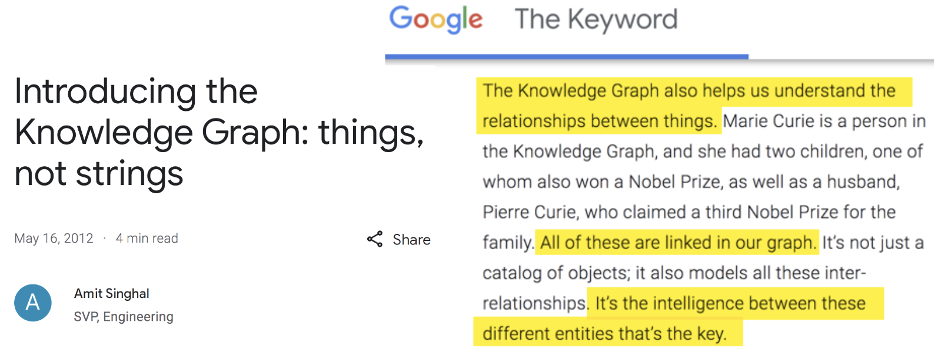
When you see a knowledge panel, this is a glimpse into the entities in the knowledge graph and the relationships between them.
Improving E-A-T means improving Google’s understanding of the entities associated with your business.

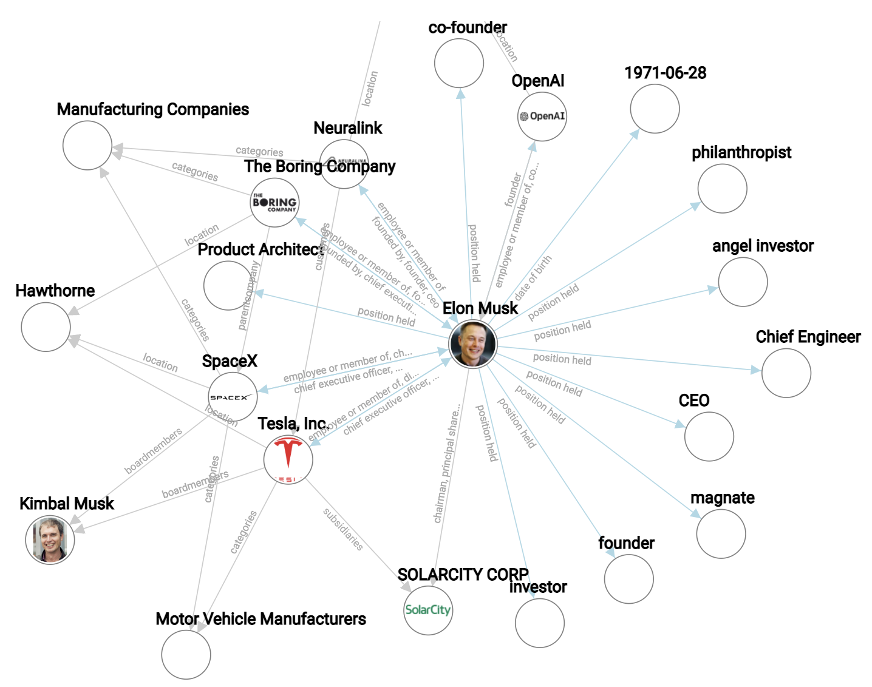
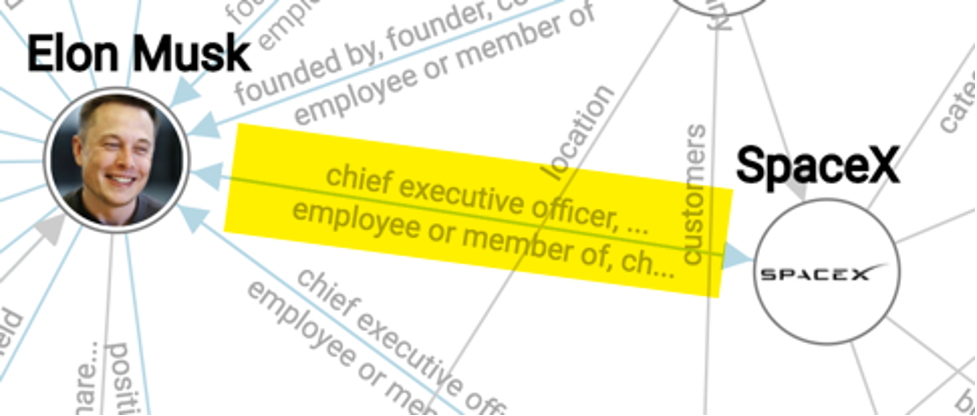
What do the Quality Raters' Guidelines say?
In the QRG, raters are told to look for evidence of other people referencing a content creator or business.
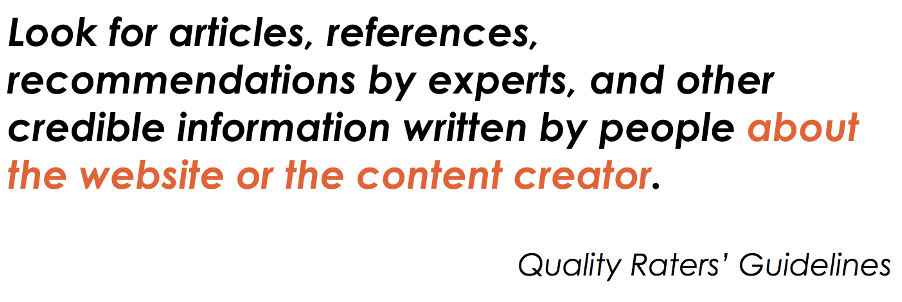
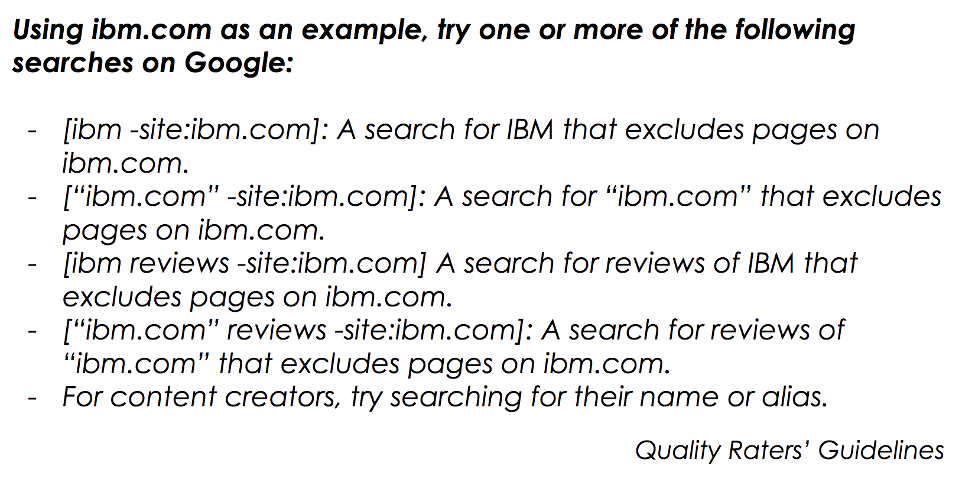
Now Google’s algos are not doing site: searches to replicate this. But I do believe they are looking to find connections that support you having expertise on a topic.
I asked Gary about E-A-T. He said it's largely based on links and mentions on authoritative sites. i.e. if the Washington post mentions you, that's good.
He recommended reading the sections in the QRG on E-A-T as it outlines things well.@methode #Pubcon
— Dr. Marie Haynes🐧 (@Marie_Haynes) February 21, 2018

How do I put all of this into practice?
So how do you put this into practice?
1) Find ways to get mentioned on authoritative sites. Not for the PageRank (although that’s still helpful if you can get it), but for the connections to support your expertise.
Think HARO, producing content that is truly linkworthy, good PR.
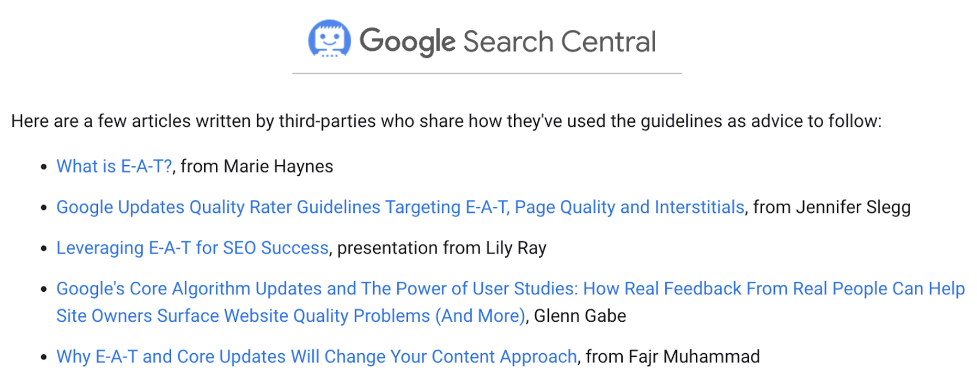
2) Create topical authority to demonstrate a deep level of knowledge on your topics. The more expert-level content you have on a topic, the more likely you are to be seen as authoritative.
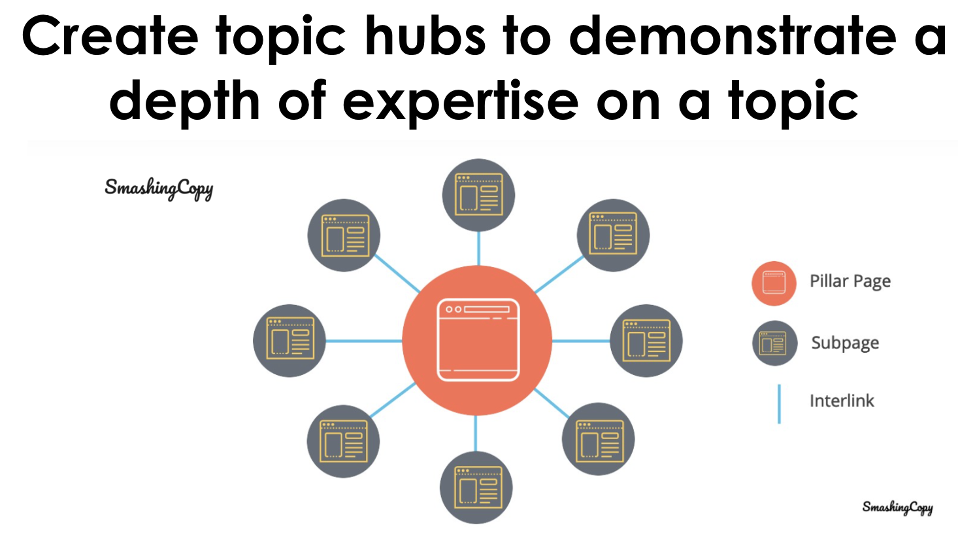
The topic layer of the kg🤯:
“built by analyzing all the content that exists on the web for a given topic and develops hundreds and thousands of subtopics.”
“We then look at patterns to understand how these subtopics relate to each other”
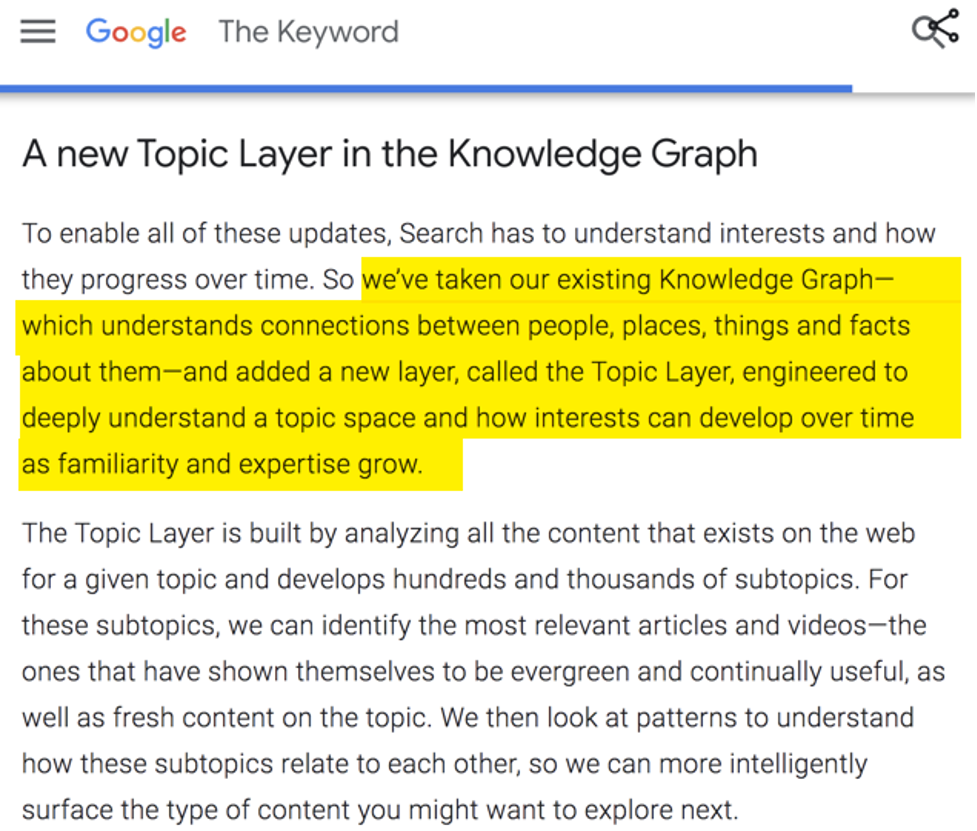
To sum up:
- Assessing content from an EAT perspective may help it rank better
- Make your entity information as clear as possible (schema)
- Get links and mentions from truly authoritative sites discussing your topic
- Create topic hubs to demonstrate the depth of expertise
If you missed the presentation at SMX advanced, check out my presentation below:


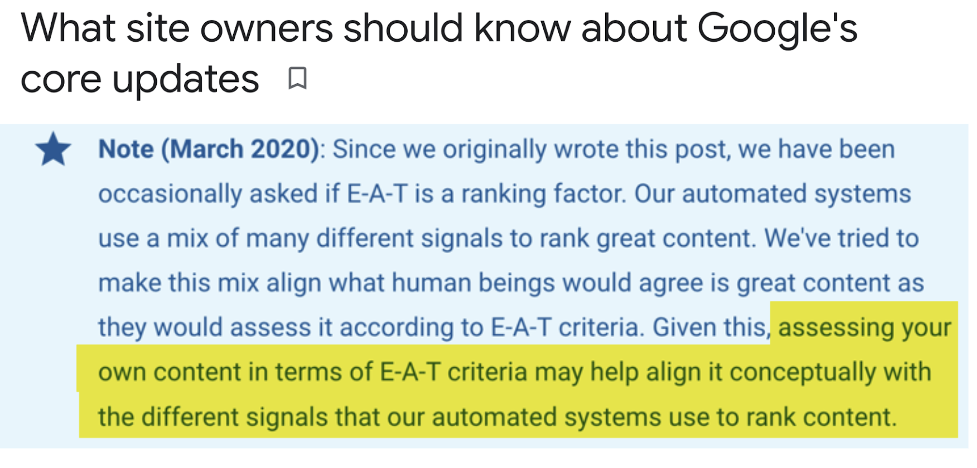



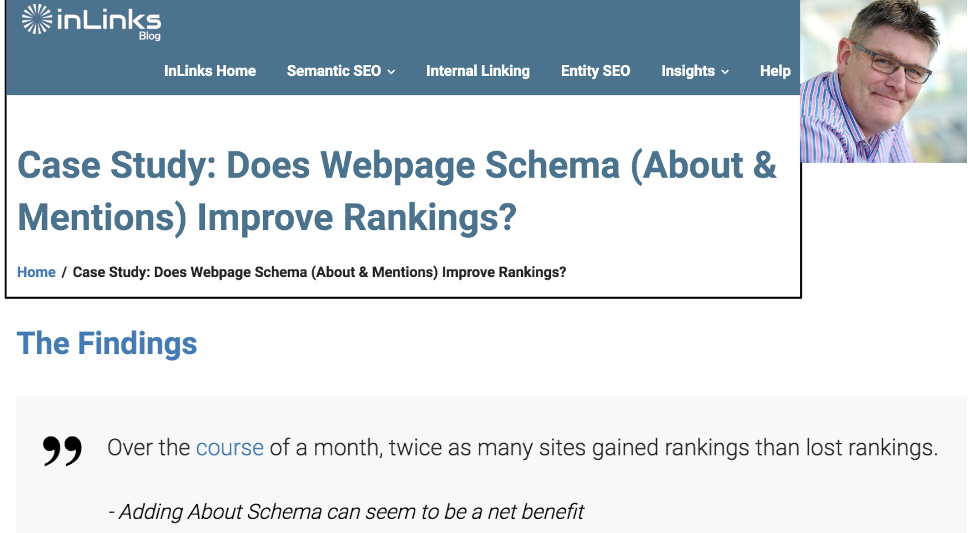

Comments
Thanks for this very valuable article. I have to read it many times. You were really great at the SEO event too. Although I thanked you on Twitter